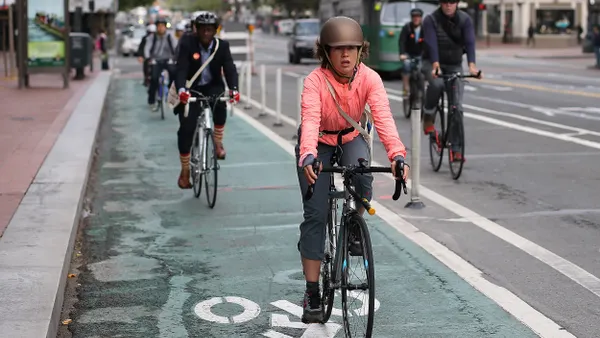A partnership in Denver plans to use a $2 million federal grant to form an incubator and accelerator that will train people for high-tech jobs that improve municipal services and environments.
The Colorado Smart Cities Alliance, a non-profit dedicated to advancing Colorado communities through new technology, will leverage the grant from the U.S. Economic Development Administration’s Economic Adjustment Assistance program, which was established through last year’s American Rescue Plan Act. The alliance will work with the University of Colorado Denver and Innosphere Ventures, a science and technology incubator. The university will also provide labor and resources.
Degree and non-degree seeking students will be able to take short classes for “microcredits” on one specific aspect of smart cities and earn certificates.
“You have to understand the technology and the politics … how government works,” Alliance Executive Director Tyler Svitak said. “You need a partnership between those two things.”
Initially, the incubator will work with small and startup companies to develop their ideas. Later, the accelerator will work with more mature firms that have developed a 5G product or service they want to put into practice with governments in Colorado. “We'll partner with them to test and validate their solutions,” Svitak explained. “We'll partner them with municipalities to test and validate their solutions.”
Through the project, the alliance is interested in using 5G technology to improve water quality monitoring, water conservation and energy efficiency. “We'll partner with utilities to test the product or service,” Svitak explained. The project also seeks to find ways to reduce the carbon footprint of buildings and transportation and prepare cities for climate disasters.
Svitak hopes to work with 10 companies a year. The plan calls for opening the first round of applications early in 2023.
Students will be able to sign up for the first four of 12 planned modules in the spring semester. “We hope we can attract students of color, women and people with disabilities to provide some diversity in the workforce,” Svitak said. Initial participants will have to be enrolled in a graduate program, but they’re looking to expand the opportunity to undergraduates and professionals, he added. “Cities of today were built with yesterday's infrastructure and they left a lot of people out. We want today to build the cities of tomorrow.”
And when the grant expires, “We definitely intend to continue the programs long term,” Svitak said, though it remains to be determined in what form. He also hopes to expand the ideas outside the state.










